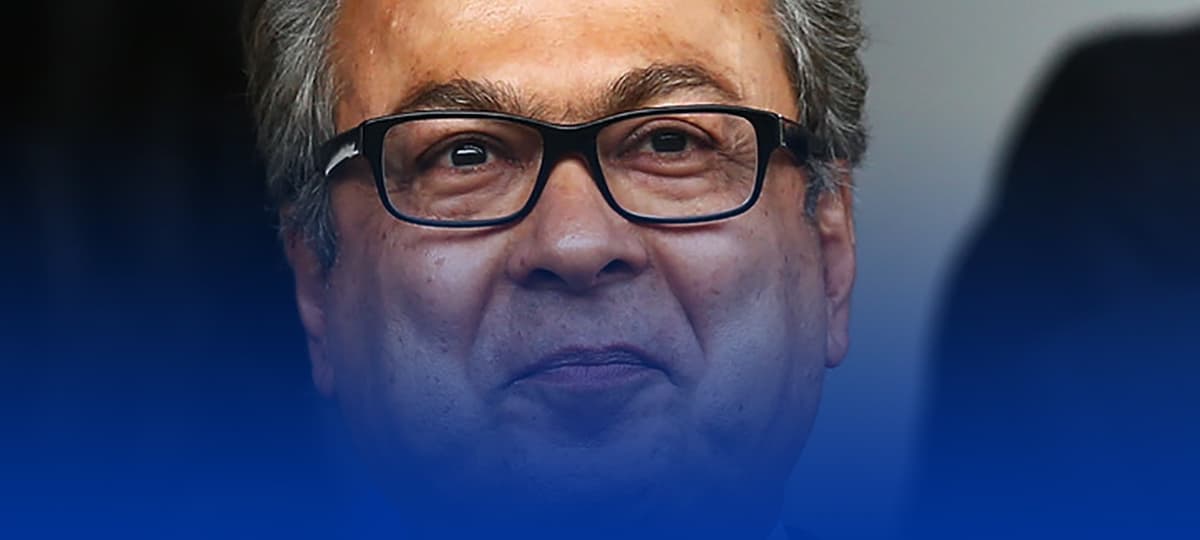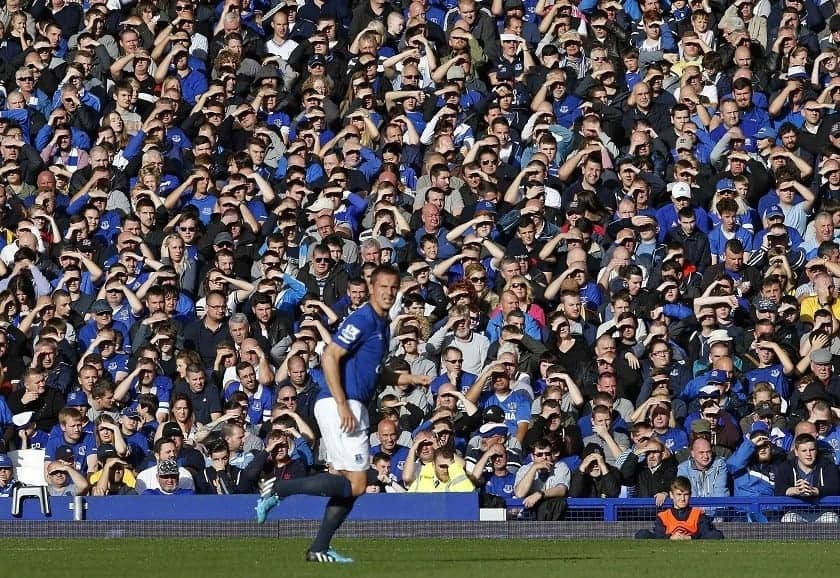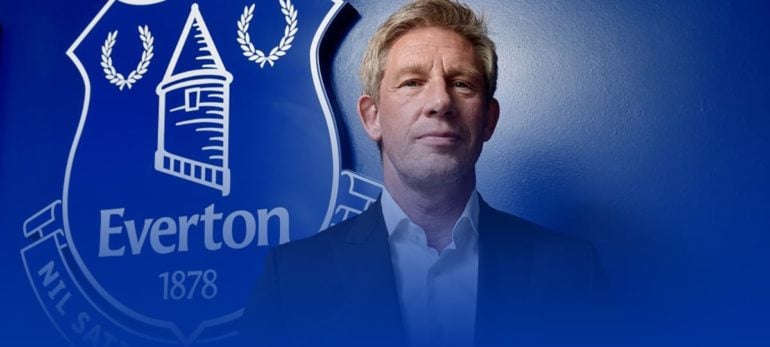In trying to comment and generalize from Everton’s pre season activity (or lack of) we are left with different competing and at times contradictory statements which all hold similar levels of validity.
- There is a concerted effort to bring the wage bill down.
- A new structure has been implemented at the club, with a vastly different approach to recruitment hinted at.
- Brands experience and CV as a DOF make him a coup for Everton and he would not likely tolerate being lied/misled.
While all 3 of the above statements remain true exclusively they may not intertwine to present a single narrative (which would be that Brands has been brought in to reduce costs as a long term measure). This along with many other theories currently in evidence amongst sections of the Everton fan base remain namely that; theories.
In trying to analyse Everton’s approach it is worthwhile to start with the intentions of the central figure in the drama Farhad Moshiri. What cannot be doubted is that in his 2 years at the club Everton have spent substantial values on players and increased the wage bill substantially in line with that. While much of this funding is underpinned by a dramatic increase in the new TV rights deal (and also astute sales of Stones, Lukaku and to a lesser degree Barkley bringing in decent revenues) there has also been a hefty cash injection from Moshiri himself to go along with these alternative revenue streams. At present the increase in spending saw Everton go from a side that acquired 47 points in a league season and reached to semi finals, to one that acquired 48 points and was knocked out at the first stage of the two major cup competitions we were competing in. The results on his own investment of (at best) standing still will undoubtedly be severely disappointing to Moshiri and almost certainly not what was in the plan as his foresaw it two years ago.

While there ought to be major sympathy for a man who has plunged significant values of his own money into the club in vain he must also accept his share of the responsibility for the poor performance. For me he was far too slow in re-constituting a board (and I still feel he needs to go further in acquiring qualified expertise) and was far too trusting of some of the old guard at board level in allowing them roles within the process that outweighed their competencies to deliver. Not only did it result in not closing enough pieces of business but also led to divisions emerging which saw the club spiraling in the autumn of last season in the anomie that reigned within the club.
In terms of his appointments he took too big a gamble on Steve Walsh who was unable to lead the football side of the club with the authority required. His pre-occupation with a big name manager blinded him to some of the failings of Ronald Koeman. He underestimated the pull Koeman would have on potential signings and it meant the club were unable to bring in some of the marquee names we were looking for in the first summer. There was also a lack of realism about the funds we were spending and the impact it would have, quite simply 150 million pounds doesn’t alone radically alter the existing order. The continued inflation within football, alongside stricter accountancy rules have made it increasingly difficult for one person to elevate a football club with the speed and simplicity witnessed at Chelsea and Manchester City. I would urge anyone to go back and acquaint themselves with the business both football clubs did in the early phases of the take overs. Then consider the packages and prices players such as Sanchez, Van Dijk, Coutinho and Mbappe went for and try to square that with the values Moshiri put into Everton and the restrictions placed upon all clubs now. All of the above would have likely signed for Chelsea, or Manchester City under their ownership yet we attracted none of the above and in truth weren’t seriously in the picture for any at the time they moved.
This may seem a harsh criticism of Farhad Moshiri and it should be made clear that I am not criticizing him for not bringing us in players such as Coutinho or Mbappe. My criticism lies in a lack of realism and understanding about how far his investment could stretch and an overly optimistic interpretation of this, the pull of Ronald Koeman and the subsequent strategy that developed from it. It was a strategy that would lead to overpaying for decent but unspectacular talent and allowing a manager too much control and influence over decision making.
This is very much the context that Brands has emerged into Everton. An “owner” who is disappointed that his objectives are not being met, a bi-polar recruitment strategy that has led to an uneven squad and a club that has had 3 managers in 3 years with distinctly different qualities. It would not be unreasonable to suggest that all of the above woes cannot be solved in 1 windows activity, certainly not a window that is shortened at one end by a new deadline and has a world cup going on until just over 3 weeks before it’s close at the other. The hope we ought to have from any DOF is that he is able to view not just the short term needs of a club but also see how they fit into a long term vision of where he wants the club to go has been demonstrated not just by the short time Brands has been here but more importantly his track record. If you accept this premise though it can surely only re-enforce the unpopular idea that all of Everton’s problems can be solved this summer.
This may appear a defeatist attitude to many sections of the fanbase, but in cultivating any plan (and being seen to be judging any plan) realism is critical. As indicated above Farhad Moshiri was to my mind guilty of an overly optimistic, almost volunteristic approach to planning. While Everton ought to have hefty targets and goals, holding people to targets that are not attainable in an unrealistic time frame will likely have the opposite affect you were hoping for. As I have indicated above, if I believed Everton could sign 6 world class players from the bets teams in Europe I would happily hold Everton to a strategy that did so, but in lieu of the £500+ million that would required to do so it again seems foolhardy to suggest that we can solve our problems in one summer via recruitment.
There will be many interpretations of the cost reduction exercises that are going on. At one end of the spectrum there is a reading that we need to reduce the wage bill substantially before any funds are available to buy players (and some suggestion this may be an ongoing occurrence as Moshiri has withdrawn any financial support for the organization). At the other there are suggestions this is merely an accounting exercise and once the wages are cleared off the books another substantial splurge will come akin to the first two summers. There are also, as always a myriad of positions emerging between those two positions and it will only be by the end of the summer that we can begin to analyse which is truer.

There are however some points I would be keen to stress when evaluating the business so far. While it would seem quite likely Moshiri has instructed the wage bill to be trimmed, there will also be pressure from PLCC and FFP to do so. Most importantly though it is not wholly inconsistent with the approach taken in Dutch football and one which has shown impressive results so far for Marcel Brands in his 15 years+ in Dutch football. I can imagine he must be quite aghast at some of the wage packets we are offering, for players who I would say are of similar abilities to players he had worked with at PSV. More than that, trading of players, selling at opportune moments as a source of raising liquidity to fund new signings is an integral part of the Dutch approach and one which was central to Brands success in Holland.
If the first point is that Moshiri is likely to have wanted a reduction and Brands may have supported such a move, the next point I would suggest is that it is unlikely that Brands would have moved from a comfortable job at PSV if he were not given guarantees within his job. I don’t believe he would trade a secure job for one which is dependent upon him continually having to sell players to raise funds. Far better opportunities would emerge for Brands and also opportunities that would not pose such a strategic risk to his reputation.
The final point I would make is that I believe it is unlikely he would stay in a job if he was promised one thing and that was radically changed, for the same reasons mentioned above. His standing and reputation in the game means he doesn’t need to take such a risk.
If Everton are unable to compete how the initial plan by Moshiri was outlined and if the new approach of removing some of the high earners and radically trimming the squad numbers is something Brands is himself an active participant in we then have to ask ourselves what does the future hold? Again it would be very easy to draw negative conclusions from this, which no doubt some will, but I believe it shows potential for how Everton are looking to move forward.
The challenge that Everton face in the medium term going forward is that commercially we continue to lag substantially behind 5 teams and soon this will likely be 6 in Spurs. While the stadium offers opportunities to close the gap and it should be the major focus of the new board at the very best any increase in Everton’s financial capabilities is likely to be more long term project. This is not to underplay this side of the business, raiding of commercial revenues remains the single biggest thing Everton need to address if we wish to start winning trophies regularly again, however judging the situation where we are at now we are an underdog in the league comfortably behind 6 teams in our spending power. To some degree Moshiri’s own benevolence has helped mask the gap for couple of years, but short of him doing that on an on going basis we will be unable to compete with the sides above us.
There are two broad solutions to this problem. The first is you don’t try to and accept your position as an also-ran in the Premier League (not too dissimilar to the approach adopted by Kenwright) and mark out a safe secure course. The other is that you take an unorthodox and risky approach to recruitment and hope that the expertise and value you spend in these areas allows you to compete in spite of the lack of funding. Clubs such as Athletico Madrid, Monaco, Dortmund and increasingly Leipzig are now leading the way in outlining such an approach, often willingly selling their top stars and backing themselves to find the next superstars in a quicker manner than the top teams.
How far Everton will look to emulate this is to be seen and whether it can be done as successfully will also be open to question. However what can’t be questioned is that they have appointed as good a Director of Football to implement this plan and a manager who fits that mould. It is perhaps because of this I remain quite calm about the lack of transfer business we have done thus far this window. What remains important for Everton going forward is not just the amount of good signings that we make, but the avoidance of poorer signings who will eat up large chunks of our budget. What is striking is that many of the players who are now being paid substantial wage packets have been recruited in the last 2 years since Moshiri came in and we radically overhauled the speed and aggression with which we targeted new incomings. That is not to say that we shouldn’t ever be looking to do business in a quick and aggressive way going forward but it would be absolutely consistent with good business practice to ensure you are first going in the right direction before speeding off in such a direction.
This more cautious approach will not likely lead to the levels of excitement we have witnessed over the last 2 years. It is unlikely to see us being crowned the champions of the transfer window or having pundits tipping us. Crucially tough it may also remove the feeling of hollow that accompanied much of last season as the realization set in that we had crashed from a far higher height than in previous years. It may mean that more players go out in this window, numerically and financially than come in but what I will be looking for is not just the signing of good players but the avoidance of signing of poor ones.


